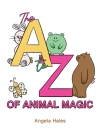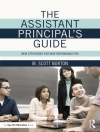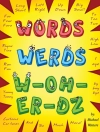‘A very compelling set of fresh ideas are offered that prepare educators to turn the corner on advocating for social justice in the mathematics classroom. Each book is full of engaging activities, frameworks and standards that centers instruction on community, worldview, and the developmental needs of all students, a must needed resource to reboot our commitment to the next generation.’
Linda M. Fulmore
TODOS: Mathematics For ALL
Cave Creek, AZ
Empower students to be the change—join the teaching mathematics for social justice movement!
We live in an era in which students of all ages have—through media and their lived experiences— a more visceral experience of social injustices. However, when people think of social justice, mathematics rarely comes to mind. With a teacher-friendly design, this book brings upper elementary mathematics content to life by connecting it to student curiosity, empathy, and issues students see or experience.
Tested in Grades 3-5 classrooms, the model lessons in this book walk teachers through the process of applying critical frameworks to instruction, using standards-based mathematics to explore, understand, and respond to social justice issues. Learn to plan instruction that engages students in mathematics explorations through age-appropriate, culturally relevant topics, such as valuing differences, health and pay inequality, bullying, voting rights, and environmental justice. Features include:
- Content cross-referenced by mathematical concept and social issues
- Connection to Learning for Justice’s social justice standards
- Downloadable instructional materials and lesson resources
- Guidance for lessons driven by students’ unique passions and challenges
- Connections between research and practice
Written for teachers committed to developing equitable and just practices through the lens of mathematics content and practice standards as well as social justice standards, this book will help connect content to students’ daily lives, fortify their mathematical understanding, and expose them to issues that will support them in becoming active citizens and leaders.
Inhoudsopgave
Preface
Introduction
Chapter 1: What Is Social Justice, and Why Does it Matter in Teaching Mathematics?
Chapter 2: Fostering a Classroom Community for Social Justice
Chapter 3: Instructional Tools for a Social Justice Mathematics Lesson
Chapter 4: Teaching the Social Justice Mathematics Lesson
Chapter 5: Mathematics Lessons for Building and Examining Identities
Lesson 5.1 Families Matter
Lesson 5.2 Playground Prejudice
Lesson 5.3 Who Appears in Billboards?
Lesson 5.4 Family Story Problems
Lesson 5.5 Exploring Maskmatics! Socio-cultural and Environmental Concerns in Disposable Masks during COVID-19
Lesson 5.6 Challenging Ableist Assumptions in Math Problems
Chapter 6: Mathematics Lessons on Society and Social Movements
Lesson 6.1 Tu Lucha es mi Lucha: Mathematics for Movement Building
Lesson 6.2 Exploring Equitable Pay for Work
Lesson 6.3 Modeling Library Funding
Lesson 6.4 Value of a School Lunch
Lesson 6.5 More Than an Athlete
Lesson 6.6 Your Action Saves Lives: COVID-19 and Systems Thinking
Chapter 7: Mathematics Lessons to Understand Our World
Lesson 7.1 Water is Our Right, Water is Our Responsibility
Lesson 7.2 Upper Elementary Math to Explore People Represented in Our World and Community
Lesson 7.3 Single Use Plastics
Chapter 8: Advice From the Field
Chapter 9: Creating Social Justice Mathematics Lessons for Your Own Classroom
Appendix A: Additional Resources
Appendix B: Lesson Resources
Appendix C: Catalyzing Change: Five Mathematical Content Domains in Grades 3–5
Appendix D: Social Justice Standards and Topics
Appendix E: Lessons by Catalyzing Change Mathematical Content Domains, Social Justice Outcomes, and Social Justice Topics
Appendix F: Social Justice Mathematics Lesson Planner
References
Over de auteur
Robert Q. Berry III is the Dean of the College of Education at the University of Arizona and the Paul L. Lindsey & Kathy J. Alexander Chair. Berry served as President of the National Council of Teachers of Mathematics (NCTM), 2018–2020. He holds a B.S. in middle grades education from Old Dominion University, a M.A.T. in mathematics education from Christopher Newport University, and a Ph.D. in mathematics education from the University of North Carolina at Chapel Hill. He taught in public schools and served as a mathematics specialist.Robert has collaborated with teachers, leaders, parents, and community members across the United States and has been a teacher at nearly all levels. These experiences have afforded him a perspective on the issues facing mathematics teaching and learning across diverse contexts. He sees himself as a teacher who is always learning and improving my professional practice. He brings a strong sense of equity and fairness, rooted in my understanding of the mathematical experiences of students of color and the belief that all students deserve access to learning environments and resources that support their engagement with mathematics. He brings an ability to establish rapport and trust with people from diverse backgrounds by working to understand their perspectives, histories, and lived experiences. He understands the importance of building partnerships and how to draw on each partner′s strengths to achieve a common goal. In sum, he brings experiences and abilities that make me an effective advocate for teachers and students.












